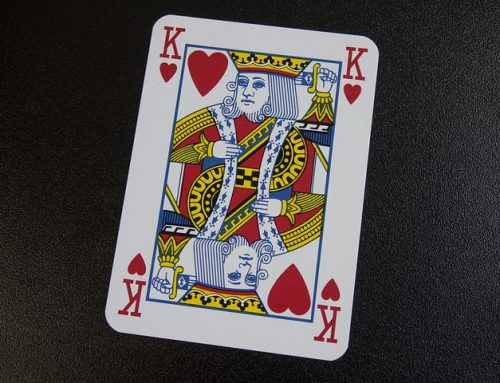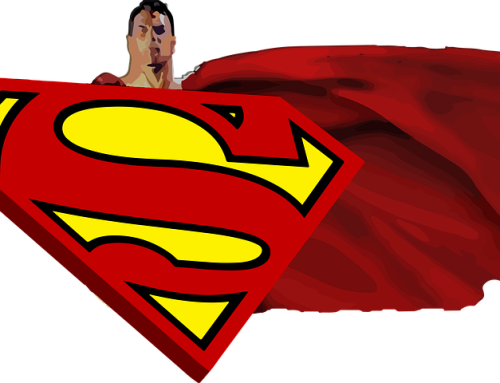I want to start off this message with a question. What is the most memorable meal you ever had? There are a lot of different ways that a meal can be memorable. It can be memorable by the food that you ate or the company you kept or the location you were when you ate it.
Here are some of the great meals I remember: I remember going with my buddy Paul to a Brazilian steak house. He ate me under the table. I remember going to Sizzler with my friend Kyle who ordered the all you can eat shrimp and managed to eat 75 shrimp and finished his salad and had some bread. My favorite meal after a mission trip is an In and Out Burger. Anyone who has had a burger in Haiti will understand.
Its just good to have a seat at the table, isn’t it? I love good food. I love being served. I love getting my drink refilled. I love not having to clean up. Do you know what I love even more than not having to clean up? Not having to fight with my kids to get them to clean up. Does anyone know what I’m talking about? It’s always an argument and they always miss something. Then when I look in the dishwasher the dishes are so disorganized it looks like they were thrown in from distance. It’s better just to have a seat at the table; to be able to relax and enjoy.
The Word
Today I want to tell you a tale about a meal in the Bible and it might be a story that you haven’t heard before. It’s not the story about the Last Supper and its not about when Jesus fed 5000 with a couple loaves of bread and a fish. This story is about a man named Mephibosheth. Great name, isn’t it? I just like to say it. Go ahead and try to say it three times fast.
I have been discussing the life of David in my messages at church lately and Mephibosheth is a great supporting character in David’s life. In case you haven’t been to my San Diego church lately (#CanyonSprings), let me catch you up. Having killed Goliath and hid in caves from Saul for years, David is now king.
David asked, “Is there anyone still left of the house of Saul to whom I can show kindness for Jonathan’s sake?”–2 Samuel 9:1
For those of you who don’t know, Jonathan was David’s best friend. He also happened to be the son of the David’s predecessor, Saul. Jonathan was killed in battle right before David was crowned king. David was heartbroken.
25 “How the mighty have fallen in battle! Jonathan lies slain on your heights 26 I grieve for you, Jonathan my brother; you were very dear to me. Your love for me was wonderful, more wonderful than that of women. 27 “How the mighty have fallen! The weapons of war have perished!” –2 Samuel 1:25-27
What Does It All Mean?
“How the mighty have fallen.” That phrase is over 3000 years old and is still in common use today and it started with this friendship. These were two warriors who fought side by side. During their early years, they lived in the same house. They were both in line for the same throne; Jonathan by blood and David by the anointing of God. That could have caused every manner of drama but Jonathan stepped aside from his rights as the next king and threw all his support for David. David’s love for Jonathan was greater than any love he had known to that point in his life. I’m not sure why David remembered Jonathan at this moment but he did.
2 Now there was a servant of Saul’s household named Ziba. They summoned him to appear before David, and the king said to him, “Are you Ziba?” “At your service,” he replied. 3 The king asked, “Is there no one still alive from the house of Saul to whom I can show God’s kindness?”–2 Samuel 9:2-3
The word used here for “kindness” is most often translated “lovingkindness.” It’s beyond kindness; it’s undeserved kindness. Another word often used here is “mercy.” Mercy means not getting something that you deserve. Let me give you an example: If you’re a guy and you say to your wife, “You sound like your mother.” You deserve to sleep on the couch. Mercy is getting to sleep in your bed. Do you understand now?
The Rest of the Story
3 Ziba answered the king, “There is still a son of Jonathan; he is lame in both feet.” 4 “Where is he?” the king asked. Ziba answered, “He is at the house of Makir son of Ammiel in Lo Debar.” —2 Samuel 9:3-4
Before we go on, let me tell you the rest of the story. Johnathon had a son and when the news came about the defeat and death of Johnathon and Saul, the nurse of Mephibosheth, assuming that Mephibosheth would be killed as was the tradition when a king is overthrown, tried to flee with Mephibosheth. When they fled, Mephibosheth fell and became “lame in both feet.” My guess is that he broke both of his ankles and they were never set correctly, so he became lame.
When David learns of Mephibosheth, he orders Mephibosheth to appear before him. At this point Mephibosheth must have been thinking, “Well, this is the end. He’s taking me out.” But David replies:
7 “Don’t be afraid,” David said to him, “for I will surely show you kindness for the sake of your father Jonathan. I will restore to you all the land that belonged to your grandfather Saul, and you will always eat at my table.” 8 Mephibosheth bowed down and said, “What is your servant, that you should notice a dead dog like me?”–2 Samuel 9:7-8
Sounds like Mephibosheth had some self-esteem issues. Is there anything sadder than a dead dog? That’s the way Mephibosheth summed up his life: “I’m crippled. I’m living in the back room at some friend’s house. I’m in hiding. What would you want with a dead dog like me?” And yet, David is asking him to eat at the kings table, and that wasn’t the only benefit:
Not only did Mephibosheth get a meal plan at the cafeteria, but all of the land that was Saul’s was now his along with about 35 servants to work the land for him and bring him the profits. What a life change! One moment he is living in the desert, in a room in someone else’s house, and now he has a seat at the king’s table. This is a perfect picture of mercy. Why? Because Mephibosheth didn’t deserve any of this.
This is Us
Do any of you watch the show, “This is us?” Well, folks, this is us. This is our story. The story of Mephibosheth is the perfect analogy for our relationship with God. Let me walk you through some of the analogies that come from this story. If you think I’m being especially deep during this segment it’s because I stole most of this information from the book David, by Charles Swindoll.
- Mephibosheth was in fellowship with his father the king, just as Adam and Eve lived in harmony with God in the Garden of Eden.
- Mephibosheth suffered a fall that left him crippled forever; Adam and Eve also fell and as a result we are all broken forever
- David, out of lovingkindness and mercy, reached out to Mephibosheth. In the same way God reaches out to us. He sent his son down to earth to pay the price for our fall. He’s still seeking people who are hurt and broken and disabled.
- Mephibosheth had nothing. He was living in a van down by the river. He had no work, no money, no wife. He was as valuable as a dead dog. The same is true of us. We have literally made millions of mistakes. We have fallen and gotten hurt. We have tripped up people around us and left them handicapped. We’ve lied and cheated and have stolen. We are undeserving. And yet, the king has made a place for us at his table.
- David restored Mephibosheth from a place of barrenness to a place of honor. God wants to do the same thing for us. He wants to reach out to us even when we are at our worse and restore us to who we can be.
- David adopted Mephibosheth into his family and he became one of the kings’ sons. Over and over the Bible uses the word “adopted” to describe our relationship.
- Mephibosheth’s disability was a constant reminder of God’s grace. That is true with us as well don’t you think? I’m broken and flawed and make mistakes and so many times after those mistakes I get to this point. “God I really need you.”
The Bottom Line
This isn’t just a great Bible story with a guy with a cool name. It’s my story; it’s your story:
We were fallen, broken. In our haste to run away from God and run away from doing what is right, we got hurt. We hurt other people. Even though we didn’t deserve it God paid the price for those mistakes. He sent His Son to die for us so that hHe could restore us. He wanted to give back to us what was lost. He wants to invite us to eat with Him at his table.
It’s a metaphor for our relationship with God. There is one message that God wants you to hear through this story today. God has reserved a seat for you at His table. Let me tell you a little something about this table. The food is great. The company is amazing. The service is impeccable.
I love to close my blog posts with questions, so let me ask you this: Have you accepted that invitation to sit at the King’s table?









Wow a wonderful sermon that is reminding us of the power of the grace of God God bless you pastor iam from Kenya I minister with Redeemed gospel church a branch called ruaka
Thank you for reading and commenting Rev Zack. Incredibly humbled and amazed that my words made it to you in Africa. God is good. Grateful for your friendship and hope to hear from you again.
Oh how I dream of going on a walk about Mission there in Your Country and to share The Love of God…
Thank you, Pastor Jack, for this teaching. It is so practical and I can see clearly now the importance of Mephibosheth’s story in my life, all our lives.
God bless you!
Thank you for reading Karen and for commenting. Glad that you found the story impactful. God bless.
A dear Sister Friend and I have been in discussion of this fabulous subject Why we are willing to eat crumbs from the floor instead of being seated at the table with The King in our rightful places…
I so enjoyed The Way God used You to communicate a clearer understanding of a very old TRUTH…
Much Love and thankful that You are so willing to be used so very well by God All Mighty…
Praise God!!!
I’m just a willing vessel sojourning along an unknown Path…
Truly blessed by your message and trust God to make us receive grace constantly till He receives us home… Amen